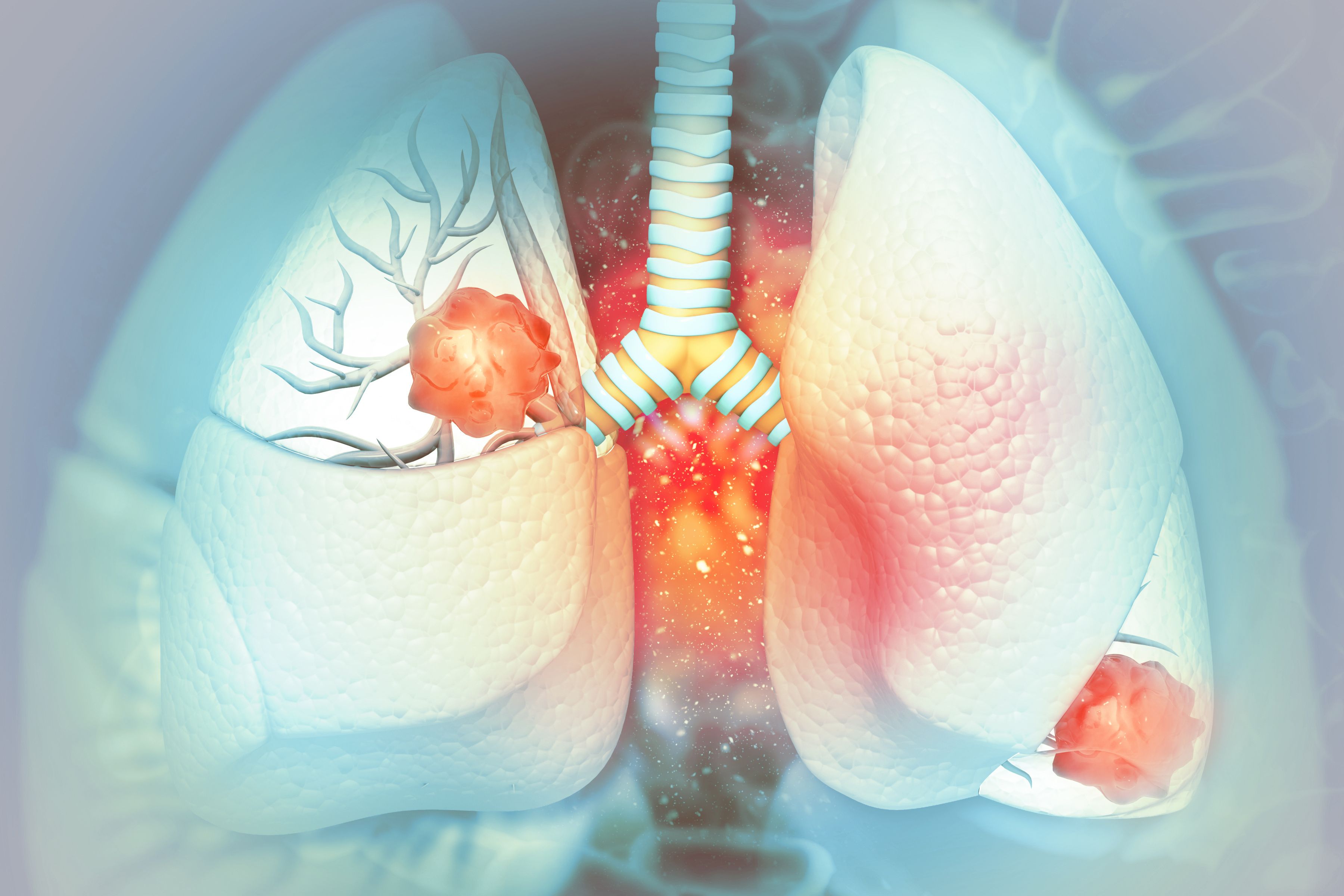FDA Accepts Ensartinib Application in Non-Small Cell Lung Cancer
The FDA has accepted the new drug application of ensartinib for the treatment of patients with metastatic ALK-positive non-small cell lung cancer.
Lung Cancer: © Crystal Light - stock.adobe.com

- Ensartinib is a next-generation oral tyrosine kinase inhibitor for the first-line treatment of anaplastic lymphoma kinase (ALK)-positive non-small cell lung cancer (NSCLC).
- The agent is being evaluated in the phase 3 eXalt3 study (NCT02767804) compared with crizotinib (Xalkori).
- A Prescription Drug User Fee Act (PDUFA) target action date of December 28, 2024, has been set.
The new drug application (NDA) of ensartinib for the first-line treatment of patients with ALK-positive NSCLC has been accepted by the FDA.1 The application is supported by data from the phase 3 eXalt3 study, and a PDUFA target action date of December 28, 2024, has been set.
“The FDA’s acceptance of this NDA represents a key milestone for Xcovery in its mission to bring ensartinib as a novel and distinct first-line therapeutic option to [patients with] ALK-positive NSCLC,” said Giovanni Selvaggi, MD, chief medical officer of Xcovery, in a press release. “We will continue to work closely with the agency during the review period. This achievement is a testament to our patient-centric vision and has been made possible by the dedication and skills of the entire Xcovery team and stakeholders, with the constant support of the patients, their families and investigators in our clinical trials globally.”
About the Phase 3 eXalt3 Study of Ensartinib vs Crizotinib
Findings from eXalt3 were published in JAMA Oncology in September 2021. The randomized phase 3 trial met its primary end point of progression-free survival (PFS) with ensartinib demonstrating a significantly longer median PFS than crizotinib (25.8 months vs 12.7 months).2 For patients with brain metastases, the confirmed intracranial response was 64% with ensartinib vs 21% with crizotinib.
Regarding safety, the most common ensartinib-related adverse events (AEs) were rash (67.8%), increased aspartate aminotransferase (37.8%), increased alanine aminotransferase (48.3%), pruritus (26.6%), nausea (22.4%), constipation (20.3%), edema (21.0%), anemia (14.0%), vomiting (11.9%), increased blood alkaline phosphatase (13.3%), increased blood creatinine (14.0%), increased γ-glutamyl transferase (13.3%), and decreased appetite (11.2%). Most of these AEs were grade 2 or lower. Grade 3 rash was observed in 11.2% of patients and was managed with dose modification. Eleven patients (7.7%) experienced serious treatment-related AEs.With crizotinib, the most observed AEs were toxic liver effects, nausea, edema, and constipation, and 9 patients (6.1%) experienced serious treatment-related AEs.
About the Phase 3 Study of Ensartininb as Adjuvant Treatment
Ensartinib is also being investigated in another phase 3 study (NCT05341583) as an adjuvant therapy in patients with ALK-positive NSCLC. This trial is currently recruiting in China.3
The primary end point is disease-free survival (DFS), and secondary end points include DFS at 3 years, DFS at 5 years, overall survival (OS), and OS rate at 5 years. Patients are randomized to receive 225 mg of ensartinib daily or placebo.
The study began in May 2022 and has an anticipated completion date of July 2025.